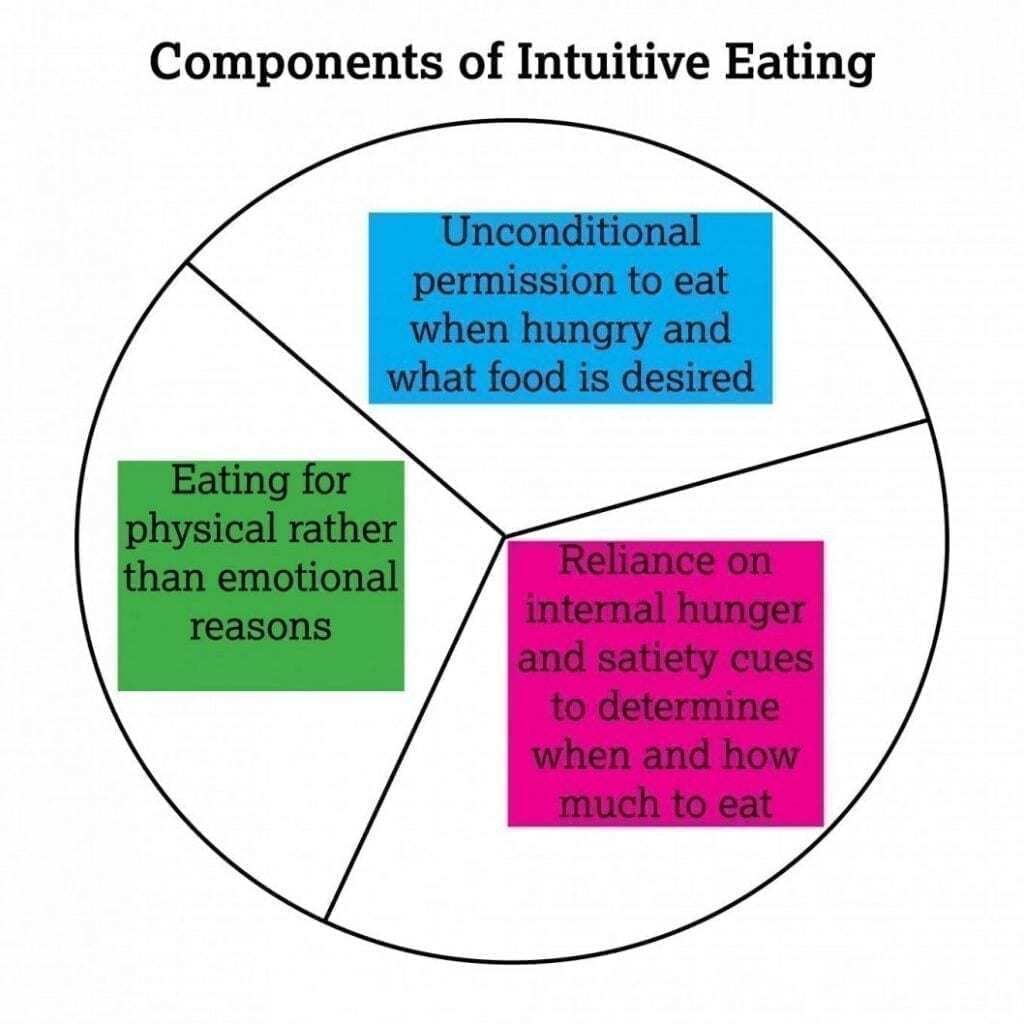Interest has recently picked up in eating as a modern lifestyle choice in recent years. While eating mindful eating is the practice of paying attention to the present moment, including one’s thoughts, feelings, and physical sensations. One must be present and aware of the food, the eating experience, and the body’s response.
In the modern lifestyle where people are mostly busy and stressed, many have developed unhealthy eating habits, such as eating quickly and mindlessly and consuming processed and high-calorie foods. Mindful eating can help individuals break these habits and establish a healthier relationship with food.
Research has shown that mindful eating can have many benefits, such as weight loss, improved digestion, reduced stress and anxiety, and overall well-being. It can contribute to a better understanding body’s hunger and fullness signals, allowing them to make better food choices and avoid overeating.
To practice mindful eating, individuals are encouraged to slow down, chew their food thoroughly, and savor the taste and texture of each bite. They should also pay attention to their body’s sensations, such as hunger and fullness, and use those cues to guide their eating.
Many techniques and approaches to mindful eating include mindfulness meditation, cautious meal planning, and mindful snacking. Choosing whole, unprocessed foods and eating in a calm and relaxed environment is also essential.
In addition to being a healthy lifestyle choice, mindful eating can be a pleasurable and enjoyable experience. By being present in the moment and absorbed in the eating experience, individuals can develop a deeper appreciation for food and greater satisfaction from their meals.
The Philosophy of Intuitive Eating

Intuitive eating is a philosophy that promotes a healthy relationship with food, body, and mind. It encourages individuals to trust their body’s signals rather than on external factors like calorie counting or strict diet plans. Intuitive eating involves tuning in to one’s own body and emotions to make food choices that are satisfying and nourishing.
The principles of intuitive eating were first introduced in 1995 by dietitians Evelyn Tribole and Elyse Resch and have gained popularity in recent years as a healthier alternative to traditional dieting. The core principles of intuitive eating include:
- Reject the diet mentality: Intuitive eating encourages individuals to not follow strict diets or eat a sure way to achieve a desired body size or shape.
- Honor your hunger: Intuitive eating involves listening to your body’s hunger signals and responding to them with nourishing foods.
- Make peace with food: Intuitive eating encourages individuals to not feel shame or any sort of guilt about their food choices and to enjoy all foods in moderation.
- Challenge the food police: Intuitive eating involves questioning and challenging the negative thoughts and beliefs around food and the body that may have been ingrained over time.
- Respect your fullness: Intuitive eating involves listening to your body’s fullness signals and stopping eating when satisfied.
- Discover the satisfaction factor: Intuitive eating involves finding pleasure and satisfaction in the eating experience rather than just focusing on the nutrients in the food.
- Honor your feelings without using food: Intuitive eating encourages individuals to explore other ways to cope with emotions and stress rather than using food as a source of comfort.
- Respect your body: Intuitive eating involves accepting and respecting your body, regardless of its shape or size, and treating it with kindness and care.
- Exercise: Intuitive eating promotes physical activity to feel good and improve overall health rather than to burn calories or achieve a specific body size.
Intuitive eating has been shown to positively impact overall health and well-being, including improved self-esteem, body image, and mental health. Through sustainability, it promotes a healthy relationship between food and body, rather than an unsustainable diet plan that can lead to disordered eating behaviors.
The Connection Between Yoga and Mindful Eating
Yoga and mindful eating go hand in hand as both practices focus on bringing awareness to the present moment and connecting with one’s body.
In yoga, practitioners are encouraged to be mindful of their breath and body movements, genuinely focusing on their breathwork, and to be present and non-judgmental of their thoughts and emotions. Similarly, mindful eating encourages individuals to be present and non-judgmental of their food choices and eating habits.
Yoga also promotes physical and mental relaxation, which can aid in reducing stress and anxiety, leading to mindless eating. Regular yoga can also improve digestion and metabolism, promoting a healthy body.
Incorporating mindful eating into a yoga practice can enhance the benefits of both methods. Practitioners can approach their meals with a sense of mindfulness, paying attention to their food’s taste, texture, and aroma, as well as their own hunger and fullness cues. By being present during meals, individuals can also develop a deeper appreciation for their food and the nourishment it provides.
Mindful eating during a yoga retreat can help people explore their relationship with food and gain insights into their eating habits. Yoga and mindful eating practices can be powerful tools for improving overall health and well-being, promoting a holistic approach to self-care.
Conclusion
In conclusion, mindful eating can be a powerful tool for promoting health and well-being as a lifestyle choice. By paying attention to our bodies and being present in the moment while we eat, we can develop a greater awareness of our hunger and fullness cues and our emotional relationship with food. This can improve digestion, better weight management, and a positive relationship with food overall.
When used in combination with other healthy choices such as regular exercise and stress reduction practices, mindful eating can help us live more vibrant, fulfilling lives. By prioritizing our health and well-being through mindful eating, we can take control of our health and our life in the most profound manner possible.
Overall, mindful eating is a modern lifestyle choice that can benefit physical, emotional, and mental health. By taking the time to savor and appreciate each bite, individuals can develop a healthier relationship with food and improve their overall well-being.



